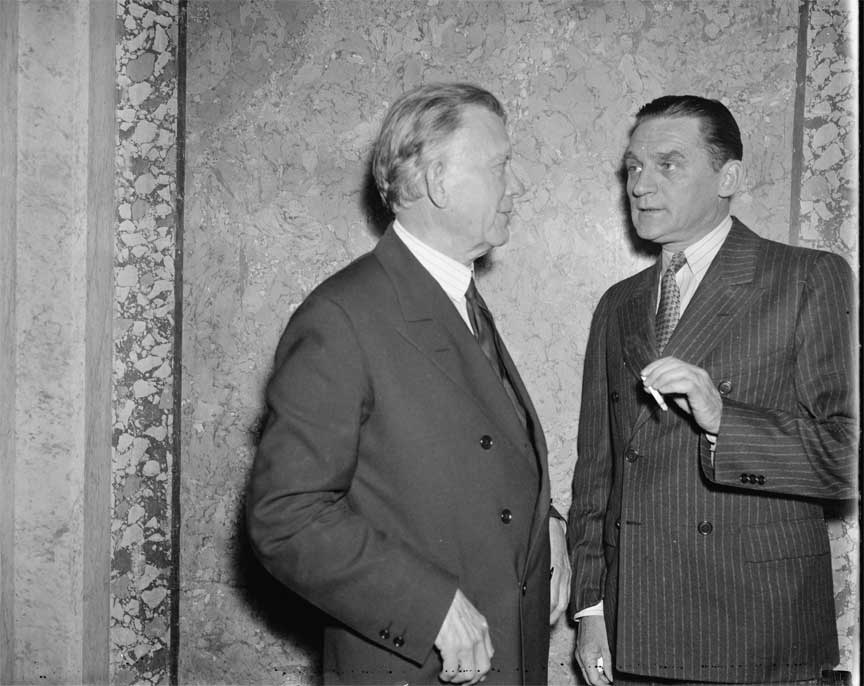Neutrality Act 1935

-
Senators Nye and Borah
On August 31, 1935 President Roosevelt reluctantly signed the first Neutrality Act. It required him to impose a arms ban on on all parties in a war.
The mood of the United States in the early part of the 1930's was extremely isolationist. A special investigation was undertaken by the Senate under the leadership of Senator Nye of North Dakota, to determine whether arms manufacturers had made undo profits during World War I. The answer was overwhelmingly affirmative. Thus, the argument went that the United States became involved in World War I at the behest of the arms makers.
As a result, the Congress began to discuss a resolution that would limit American involvement in foreign wars.
The president requested a law that would allow him to place an embargo on arms to the country that he considered the aggressor while continuing to sell weapons to the victim. The Congress rejected the administration's bill and instead voted for a bill that stated that whenever the president declared a state of war to exist, he must declare an arms embargo on all sides. Roosevelt reluctantly signed the bill into law.
 >
>